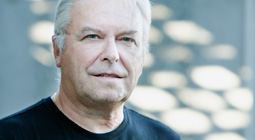Louisiana Bucket Brigade: Fighting for Environmental Justice in Fenceline Communities
The Louisiana Bucket Brigade is a non-profit environmental health and justice organization working with communities that neighbor oil refineries and chemical plants. The Bucket Brigade helps communities hold these industries accountable for pollution by providing assistance with community organizing, education, media outreach, and gathering evidence against industry, including training communities to use an EPA-approved “bucket” to conduct air sampling in order to document toxic air pollution.
Please join us on April 3 & 4 to hear representatives from the Bucket Brigade discuss their environmental justice work.
PUBLIC TALKS:
Wednesday, April 3, 6:00 pm
Student Center Room #111
Thursday, April 4, 3:30 pm
White Hall Classroom Building #231
Ronesha Johnson is a community member from Shreveport, LA and Environmental Justice Corps fellow with the Bucket Brigade.
Kristen Evans, MA joined the Bucket Brigade in 2011, working with Residents for Air Neutralization before she started the Bucket Brigade's Art-to-Action program.
These talks are part of the American Studies Program’s Environmental Justice Speaker Series.
Co-sponsored by American Studies, Appalachian Studies, and the Student Sustainability Council.


 Dr. Derek Gregory is a member of the Department of Geography and one of two Peter Wall Distinguished Professors at the Peter Wall Institute for Advanced Studies at the University of British Columbia in Vancouver, Canada. Dr. Gregory trained as an historical geographer at the University of Cambridge. His research focused on the historical geography of industrialization and on the relations between social theory and human geography and explored a range of critical theories that showed how place, space, and landscape have been involved in the operation and outcome of social processes. His 1982 book, Regional Transformation and Industrial Revolution, was staged on the classic ground of E.P. Thompson’s Making of the English Working Class. Following a move to Vancouver in 1989, Gregory’s work was reinforced by postcolonial critique, outlined in his 1989 book Geographical Imaginations. This new phase of work owed much to Edward Said’s critique of Orientalism, but it was much more concerned with the corporeality and physicality of travel – with embodied subjects moving through material landscapes – and with the constantly changing (often mislaid) cultural baggage of the travelers. And it paid attention what travelers mapped, sketched, and photographed – and to the consequences these representations had for their encounters.
Dr. Derek Gregory is a member of the Department of Geography and one of two Peter Wall Distinguished Professors at the Peter Wall Institute for Advanced Studies at the University of British Columbia in Vancouver, Canada. Dr. Gregory trained as an historical geographer at the University of Cambridge. His research focused on the historical geography of industrialization and on the relations between social theory and human geography and explored a range of critical theories that showed how place, space, and landscape have been involved in the operation and outcome of social processes. His 1982 book, Regional Transformation and Industrial Revolution, was staged on the classic ground of E.P. Thompson’s Making of the English Working Class. Following a move to Vancouver in 1989, Gregory’s work was reinforced by postcolonial critique, outlined in his 1989 book Geographical Imaginations. This new phase of work owed much to Edward Said’s critique of Orientalism, but it was much more concerned with the corporeality and physicality of travel – with embodied subjects moving through material landscapes – and with the constantly changing (often mislaid) cultural baggage of the travelers. And it paid attention what travelers mapped, sketched, and photographed – and to the consequences these representations had for their encounters.